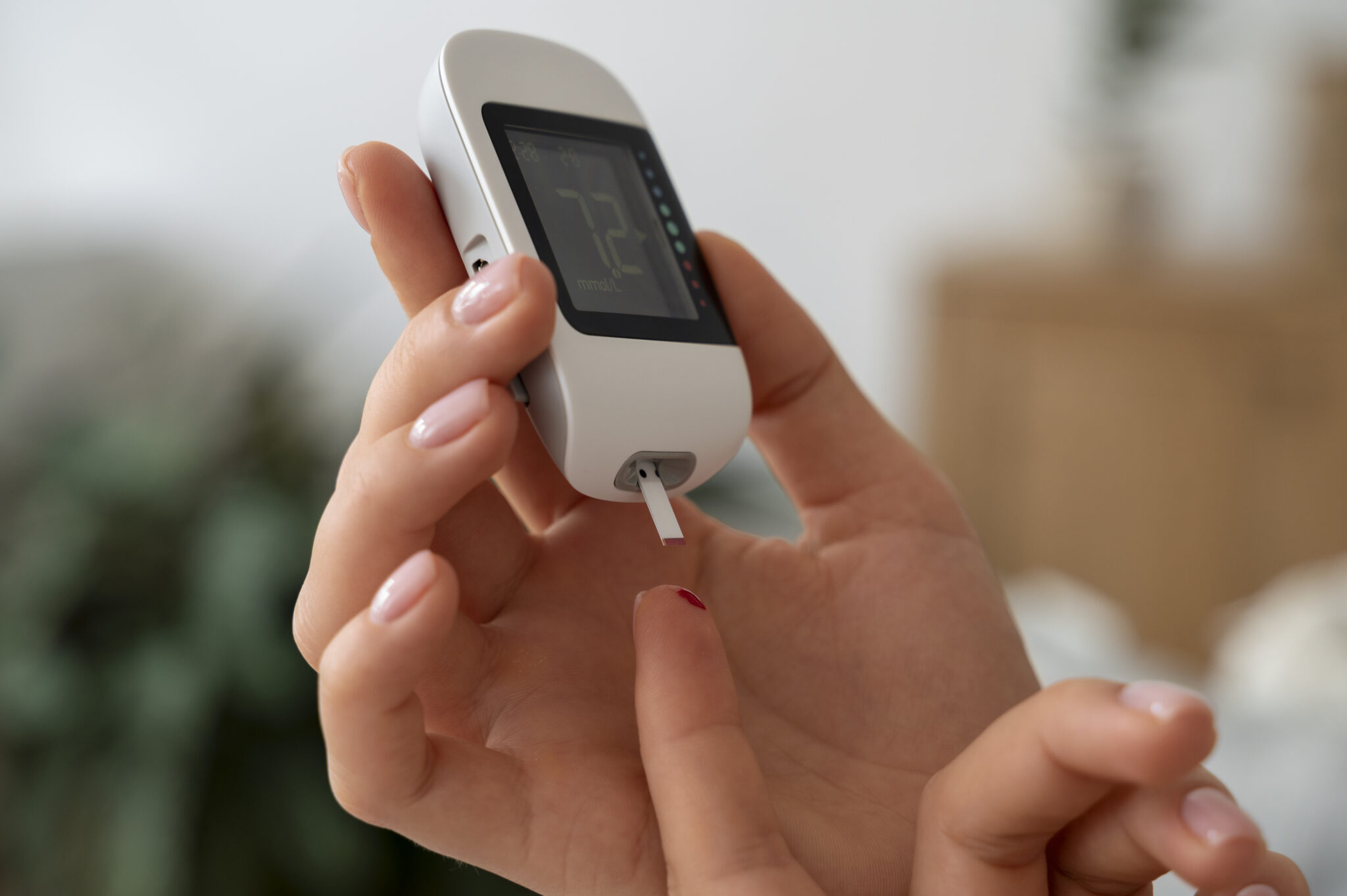Having an understanding of the different ways that your body works is absolutely essential to being your best, happiest, and healthiest self, and understanding your hormones is a big part of that! Hormones are the body’s message system, allowing different organs and systems to communicate with each other and keeping everything in your body, from your sleep to your digestion to your reproductive system, working as it should. Today, let’s take a look at a hormone you’re probably familiar with: insulin!
What is Insulin?
Most people know what insulin is, but many people don’t actually realize that it’s a hormone! Just like other hormones that your body produces such as melatonin, estrogen, and testosterone, insulin is a naturally occurring chemical that plays an important role in one or many of your bodily functions– in this case, your digestion.
What Does Insulin Do?
Insulin’s main role is to help the body process glucose, or sugar. Pretty much all foods have some amount of sugar or glucose in them, since all carbohydrates are made of sugars in different forms. In your digestive system, carbohydrates are broken down into smaller molecules of basic glucose, which is then absorbed into your bloodstream. Insulin is how your body takes that sugar and uses it, turning it into energy that can be burned to help you do anything from running a marathon to doing some paperwork. Everything your body does needs energy, even just keeping your heart beating, and insulin turns the food you eat into the fuel that powers the entire mechanism of your body!
Where is Insulin Made?
Hormones are made in all different places over the body; some in the reproductive organs, some in the brain, and so on. Insulin is a digestive hormone, and it’s produced in the pancreas! Producing insulin and releasing it into your bloodstream is one of two main functions that the pancreas has. The other is producing an enzyme to help food break down and digest in your system.
How Does Insulin Affect Me?
In healthy people with properly functioning pancreases and no insulin-related problems, insulin is a hormone that does its job quietly and reliably. It turns glucose into energy and helps that energy get to the places in your body it needs to go. However, there are some common problems people can have with insulin, making up the different types of diabetes. Here are a few of them, and how they work.
What Causes Insulin Problems?
If you have problems with your insulin levels or blood sugar, you have some form of diabetes. There are many different types of diabetes that can affect people in different ways and at different forms in their lives.
Type 1 Diabetes
Type 1 diabetes is a chronic, or lifelong, condition that’s believed to be an autoimmune disorder. It’s typically discovered in childhood, with kids complaining of symptoms like excessive thirst, weakness or dizziness, blurred vision, frequent urination, irritability and mood changes, intense hunger, and unexplained weight loss. The pancreas of someone with Type 1 diabetes either makes very little insulin or no insulin at all, leading to an inability for that person’s body to regulate their blood sugar levels or use glucose properly.
The cause of Type 1 diabetes has yet to be identified, and the condition is incurable, but it is highly treatable with the help of prescribed insulin, regular blood sugar testing, and careful monitoring of glucose intake.
Type 2 Diabetes
Type 2 diabetes, unlike Type 1, develops over time rather than someone being born with it. It more commonly develops later in life, although younger people can get it. It has similar symptoms to Type 1 diabetes and similarly includes the pancreas not producing insulin properly, but in Type 2, the cells in the body also don’t respond to insulin the way they should.
There are certain risk factors for developing Type 2 diabetes, including genetics, weight, inactivity, age, and certain comorbid conditions like polycystic ovarian syndrome (PCOS). Type 2 diabetes can create a huge amount of health risks if not addressed, but the condition is luckily very treatable. There are many medications available to help people with this disease control their blood sugar levels, and lifestyle changes can also be extremely beneficial.
Gestational Diabetes
This is a type of diabetes that develops in a woman during pregnancy when she’s never been diabetic before. No one knows exactly what causes it, but it’s believed that the major changes that happen to all of the body’s hormones during a pregnancy are involved in the sudden inability to manage glucose correctly. Usually, gestational diabetes only lasts for the duration of the pregnancy, with blood sugar levels going back to normal shortly after the birth of the baby.
While the condition is temporary and manageable with medications and a healthy lifestyle, it can pose serious health risks to both the mother and the baby if left untreated. Gestational diabetes also can be more difficult to notice than other types, as its symptoms, like frequent urination, overlap with normal and healthy symptoms of pregnancy. This is why most mothers undergo a test to screen for gestational diabetes at some point during their pregnancy. Women who have gestational diabetes also have a higher risk for developing Type 2 diabetes later in life, and may need additional testing to monitor their blood sugar over time.
Latent Autoimmune Diabetes
Type 1 diabetes is a type of diabetes that someone is born with, a malfunction in their pancreas that has always been there. Latent autoimmune diabetes, or LADA, is similar in that it’s a malfunction in the way the pancreas produces insulin, but it develops and presents more slowly than Type 1, usually discovered in adulthood. It’s sometimes called Type 1.5 diabetes. People with LADA are sometimes diagnosed with Type 2 diabetes by mistake, because the body still makes some insulin but slowly loses its ability to do so. Many people with LADA don’t start out needing insulin injections but reach that point over time. Other medications and lifestyle changes can help LADA to be more manageable.
Like all hormones and functions of your body, insulin is interconnected with many other different hormones and systems, and helping one often helps the other. If you’re interested in learning more about hormones and how hormone therapy might be a helpful treatment for you, you can find more information here!





